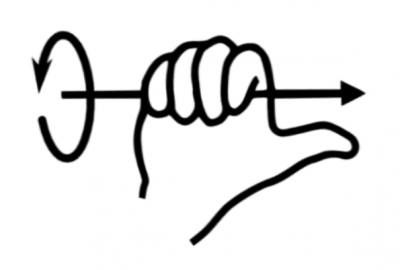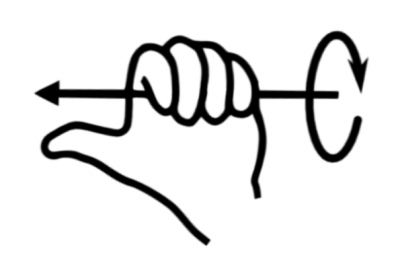Difference between revisions of "Bender Rotation Directions"
From ATTWiki
| (13 intermediate revisions by one user not shown) | |||
| Line 1: | Line 1: | ||
| − | + | [[image:vtube-step_logo_1.96.png|200px]] | |
| + | [[image:vtube-laser_logo_1.96.png|200px]] | ||
| + | |||
| + | The "positive" direction for rotations in benders is NOT standardized. It is important to understand how to determine rotation directions to avoid confusion through mirror-imaging parts accidentally. | ||
# The direction of rotation can be indicated with a CW or CCW direction of rotation from the viewpoint of a viewer at the front of a bender looking toward the rear of the bender. | # The direction of rotation can be indicated with a CW or CCW direction of rotation from the viewpoint of a viewer at the front of a bender looking toward the rear of the bender. | ||
| − | # When a bender collet rotates CCW to rotate positive, then it uses the American industry standard, the standard for our VTube software. | + | # When a bender collet rotates CCW to rotate positive, then it uses the American industry standard, the standard for our VTube and CNC Bender software. In this case, +90 would rotate the chuck 90 degrees CCW. |
| + | # When a bender collet rotates CW to rotate positive, then it uses the non-American industry standard, the opposite of our software. In this case, +90 would rotate the chuck 90 degrees CW. | ||
| − | The | + | <br><br> |
| + | The engineering community uses a simple right-hand/left-hand rule to designate which way an axis spins positive: | ||
| − | + | <table width=1000> | |
| + | |||
| + | <tr> | ||
| + | <td> | ||
| + | This illustration demonstrates the RIGHT-HAND rule* | ||
| − | |||
In this "right-hand rule" illustration: | In this "right-hand rule" illustration: | ||
| Line 18: | Line 26: | ||
# The direction of the curl of your fingers represents the direction of a positive rotation. | # The direction of the curl of your fingers represents the direction of a positive rotation. | ||
# Therefore, the right-hand rule indicates that positive rotates CCW. | # Therefore, the right-hand rule indicates that positive rotates CCW. | ||
| + | # This is the meaning of "positive" for rotations in our software. | ||
| + | </td> | ||
| + | <td> | ||
| + | [[image:bobcad_righthand_rule2.png|400px]] | ||
| + | </td> | ||
| + | </tr> | ||
| + | |||
| + | <tr> | ||
| + | <td> | ||
European and Asian benders usually follow the LEFT-HAND rule - which means that positive rotates CW. (To prove this, hold your left hand so that your thumb is pointing at you. What direction do your fingers curl?) | European and Asian benders usually follow the LEFT-HAND rule - which means that positive rotates CW. (To prove this, hold your left hand so that your thumb is pointing at you. What direction do your fingers curl?) | ||
| + | </td> | ||
| + | <td> | ||
| + | [[image:bobcad_lefthand_rule2.png|400px]] | ||
| + | </td> | ||
| + | </tr> | ||
| + | |||
| + | |||
| + | </table> | ||
| + | |||
| + | <br><br> | ||
| + | |||
| + | *This illustration is from the BobCAD-CAM site. | ||
Latest revision as of 16:43, 5 April 2022
The "positive" direction for rotations in benders is NOT standardized. It is important to understand how to determine rotation directions to avoid confusion through mirror-imaging parts accidentally.
- The direction of rotation can be indicated with a CW or CCW direction of rotation from the viewpoint of a viewer at the front of a bender looking toward the rear of the bender.
- When a bender collet rotates CCW to rotate positive, then it uses the American industry standard, the standard for our VTube and CNC Bender software. In this case, +90 would rotate the chuck 90 degrees CCW.
- When a bender collet rotates CW to rotate positive, then it uses the non-American industry standard, the opposite of our software. In this case, +90 would rotate the chuck 90 degrees CW.
The engineering community uses a simple right-hand/left-hand rule to designate which way an axis spins positive:
|
This illustration demonstrates the RIGHT-HAND rule* In this "right-hand rule" illustration:
|
|
|
European and Asian benders usually follow the LEFT-HAND rule - which means that positive rotates CW. (To prove this, hold your left hand so that your thumb is pointing at you. What direction do your fingers curl?) |
- This illustration is from the BobCAD-CAM site.



